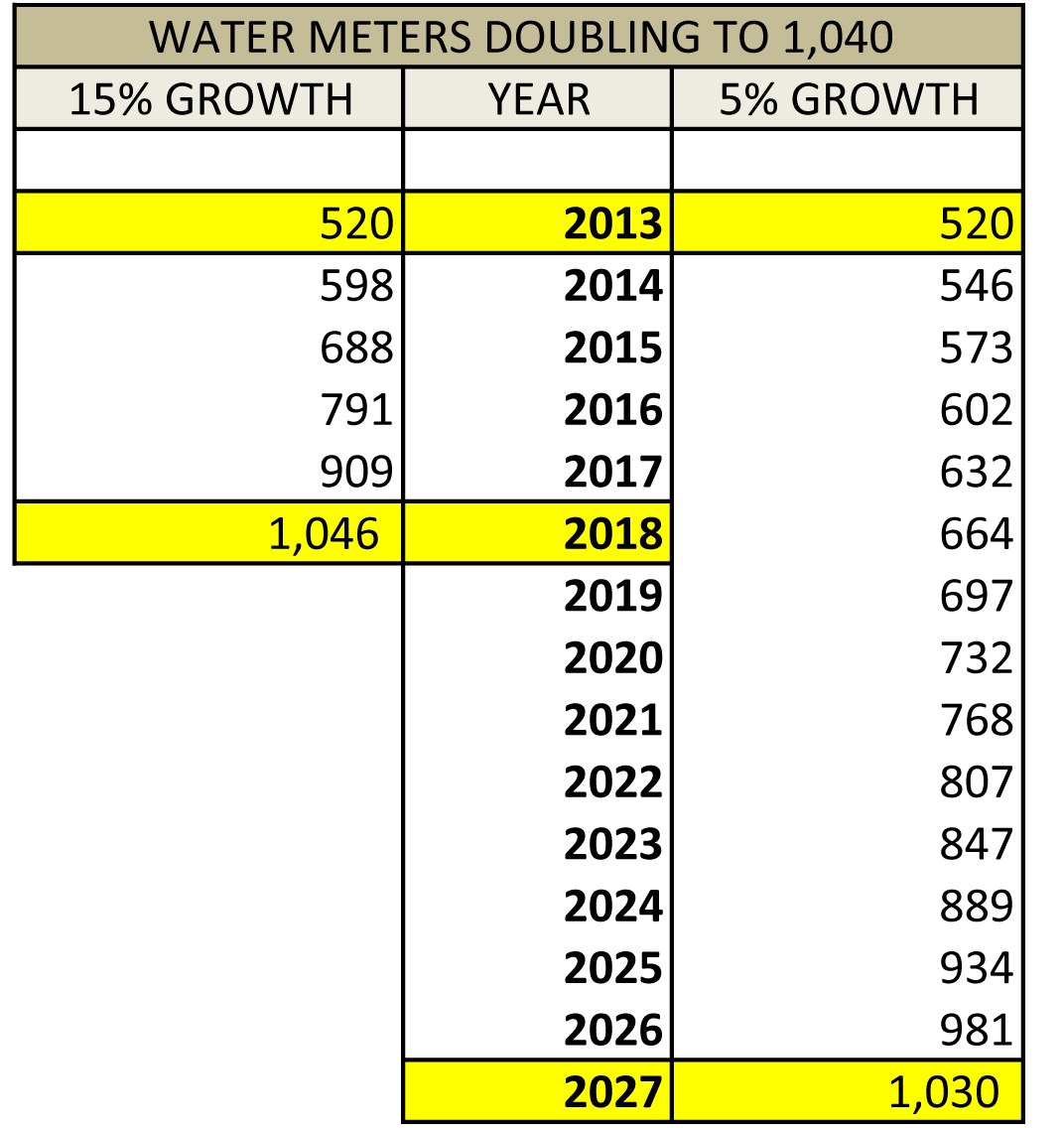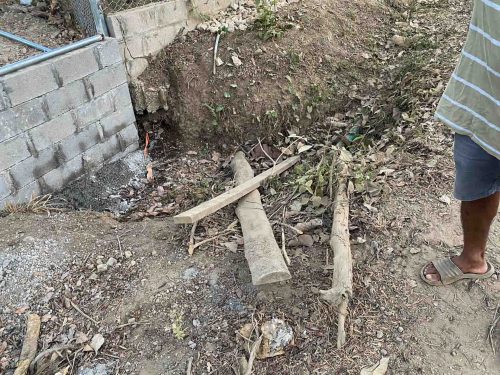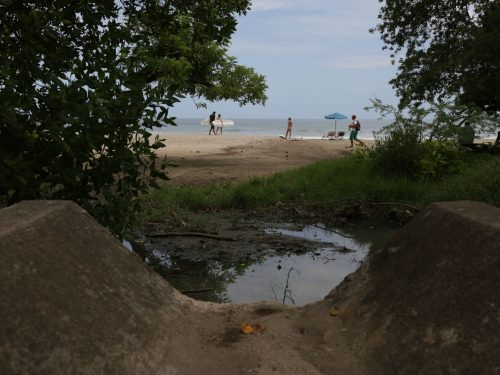
For those of us of a certain age, our first encounter with reciting poetry from memory was the “Rime of the Ancient Mariner,” with the line, “”Water, water, everywhere, nor any drop to drink.” At Playas de Nosara, it’s déjà vu all over again when our taps run dry as we are virtually surrounded by water.
At a special December 20 ASADA meeting, only about 30 of our 250+ ASADA members attended to learn of the results of an engineering study that concerned, in part, the prospects for the future of the “American Project’s” ASADA. The Voice of Guanacaste, reporting on the meeting, proclaimed in its headline, “Study of Water in Guiones and Pelada Shows Capacity for 20 More Years.” The problem with this reassuring news was that the engineering study was based on a 5% per year growth rate, calculated that the ASADA will need to double its capacity in 14 years. But the disturbing news is that actual growth now is more like15%, meaning that at this rate, the ASADA will need to double its capacity in 4.66 years. And at this rate, conservation, however diligent, does not nearly solve our water problem and rate increases, either voluntary or mandatory, will not meet the gap between demand and supply at the present speed of growth.
As I write this blog between Christmas and New Years Day, interruptions in the water supply have been attributed to Playas de Nosara operating at full capacity, which is typical for the holidays. So even if we can reduce usage to a 5% growth rate, periods of peak usage can alienate our economic foundation, that is, visitors who have paid a treasure to join us expecting the usual amenities, including ample water for toilets, showers and smoothies.
To manage our growth down to 5%, we need to both improve the system and find the enforcement mechanism to curb land subdivisions, reduce the FAR (floor area ratio; that is, the ratio of a building’s total floor area to the size of the piece of land upon which it is built), and assure all construction is permitted and adequate impact fees paid. Without restraint, rapid growth reduces water supply that kills return on investment and devastating to property values.
Despite popular belief, the Costa Rica Constitution does not guarantee our access to water. Title V, Article 50 of the Costa Rica Constitution does state, “Every person has the right to a healthy and ecologically balanced environment.” The relevant draft Water Law has never been completed due to disagreements over the issue of the human right to water.
According to the law firm, Beverage & Diamond,
The National Water Policy [but not rule of law] includes a number of basic principles to guide future water resources management in the country, including, among others: (i) the human right to access to potable water and basic sanitation; (ii) the ecosystem as an integral focus of water resources management; (iii) prioritization of water use for human needs; (iv) harmonization of land use planning and water resources development; and (v) the polluter pays principle, where the state guarantees the internalization of environmental and social costs for water contamination. In addition, the National Water Policy outlines eight strategic areas for action, many of which focus on establishing an administrative framework to ensure that these principles will be addressed. The Ministry (MINAET) is charged with implementing this Policy [It has not].
Costa Rica’s framework for water governance, Ley de Agua, is virtually unchanged since 1942. Legal loopholes (water is not currently defined as a human right) leave confusion over roles and responsibilities, a water policy without an implementing law and a fragmented system of water governance.
The ASADA, based on an engineering study for Playas de Nosara, has estimated that 5% growth permits a stable water system. We must have broad community support to achieve this managed growth rate and comply with the National Water Policy. If growth moves faster, we must understand and endure the consequences.
I will write more on this subject as a strategy for improvement develops.







Comments